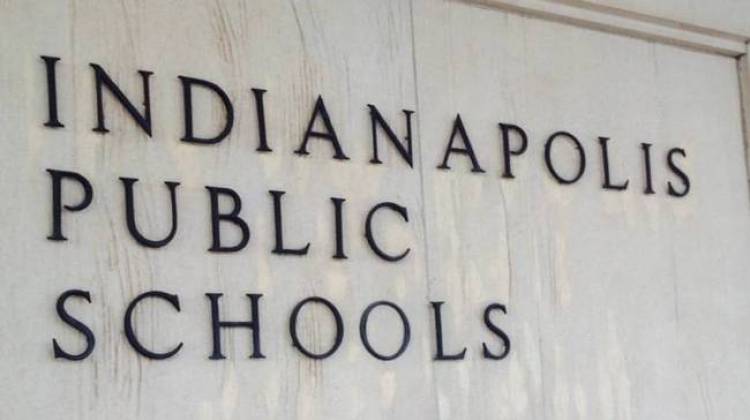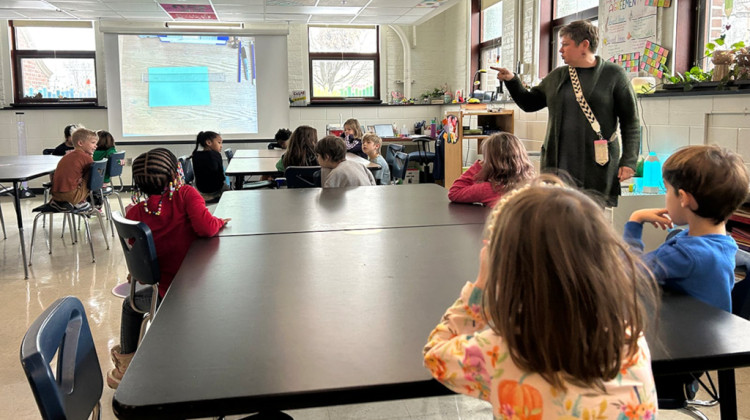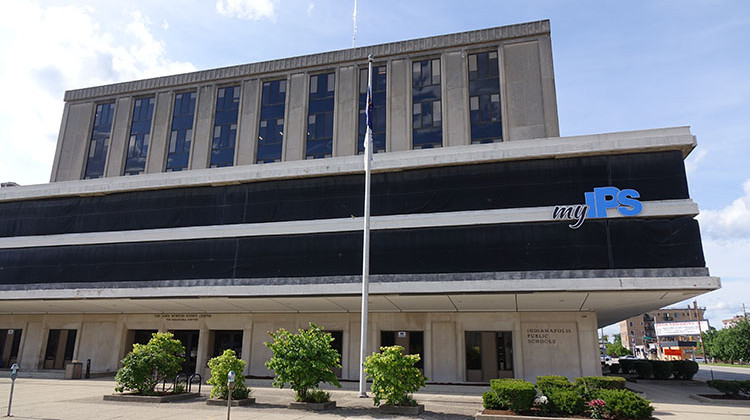Indiana's public access counselor Luke Britt issued an advisory opinion Wednesday stating that the Indianapolis Public Schools Board did not follow the state's Open Door Law when it filed a lawsuit in August against multiple state officials.
A formal complaint was submitted against the board alleging it violated the law because a public vote was not held before executing a lawsuit against Indiana Education Secretary Katie Jenner and others. The lawsuit filed in Marion Superior Court sought to legally establish whether the district is exempt from a law that allows charter school organizations to buy closed school buildings for one dollar.
In a seven-page opinion, Britt explained the IPS board’s actions are not consistent with the Open Door Law or other state statutes the district relied upon for its decision-making process.
But IPS argued it was not in violation of the law because of past precedents set by the public access counselor’s office and state code allowing boards to approve an action after it takes place in some circumstances. A discussion between IPS Superintendent Aleesia Johnson and the district general counsel led to the authorization of the civil court filing on Aug. 21, according to the opinion.
The district claimed the lawsuit could be approved by the board after it was filed with the court. The reasoning, in part, is because the Open Door Law does not require a board to take a vote as a condition to action. The IPS Board ratified the lawsuit during an Aug. 31 public meeting.
Indiana Public Access Counselor Britt rejected the arguments from IPS attorneys.
“... what happens if the Board disagrees with the lawsuit and overturns the decision? That is a messy situation simply not contemplated by sound governance or procedure,” Britt wrote in the opinion in response to arguments the board could retroactively approve a lawsuit.
Britt also disregarded some of a 2012 opinion from his office that IPS cited as precedent to a governmental board approving a lawsuit after it is filed.
“Boards exist to govern the agency and not the other way around. Therefore, we have long since parted with the absolutist position of prior PAC guidance that final action by a board is not a prerequisite to filing litigation," Britt wrote. “If that is the case, the Open Door Law is rendered meaningless in context and ‘powers and duties’ statutes become nullity. We decline to adopt an interpretation that usurps unambiguous statutory terms.”
In conclusion, Britt said the IPS board’s action to “authorize the filing of a civil lawsuit should have happened in a public meeting prior to filing the petition in court as required by the Open Door Law.”
Opinions issued by the PAC are nonbinding.
An IPS spokesperson said Wednesday afternoon the district is unable to provide a comment on the opinion until after the holiday break on Monday.
The purpose of Indiana’s Open Door Law is to allow the public to see the official actions of public agencies, like school boards or city councils. The law requires public notice of the date, time, and place of any meetings, executive sessions, or any rescheduled or reconvened meeting at least 48 hours prior to the meeting, according to the public access handbook.
The Indiana Charter School Network submitted the complaint with the Indiana Public Access Counselor on Aug 28. The group asked the office to issue a formal opinion on whether the IPS Board’s actions violated the Open Door Law.
Contact WFYI education editor Eric Weddle at eweddle@wfyi.org.
 DONATE
DONATE







 Support WFYI. We can't do it without you.
Support WFYI. We can't do it without you.